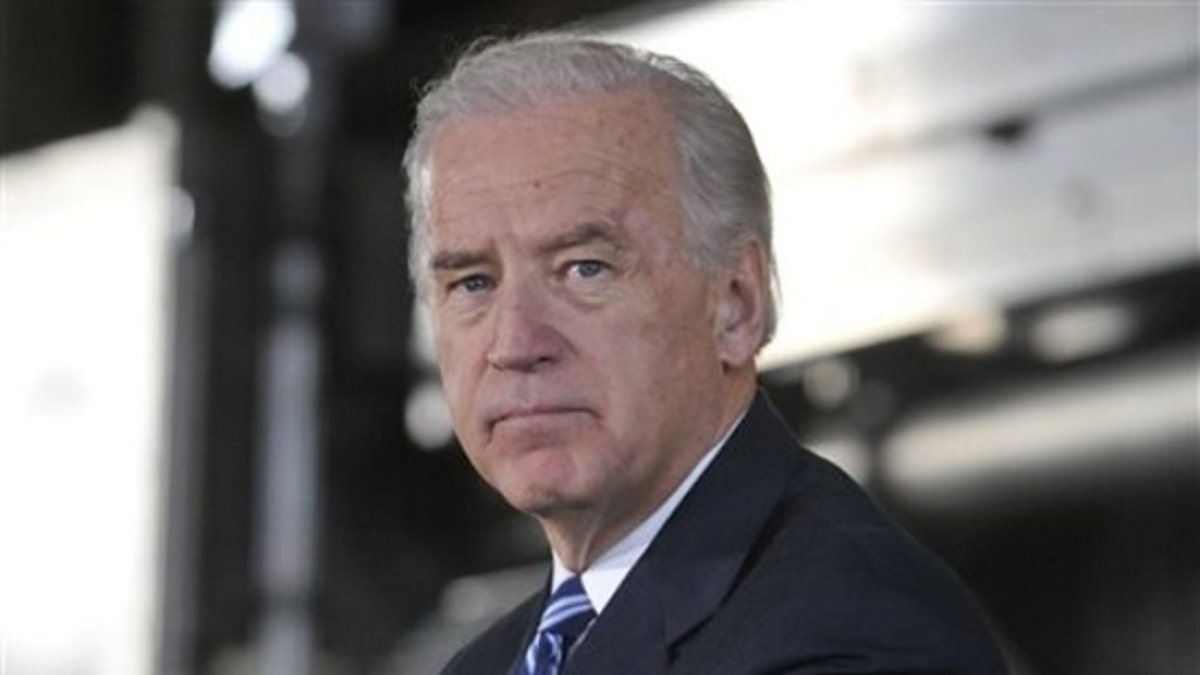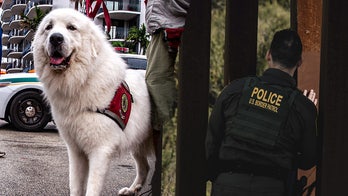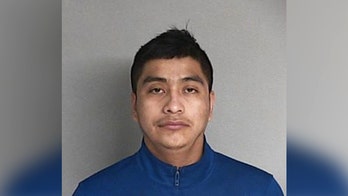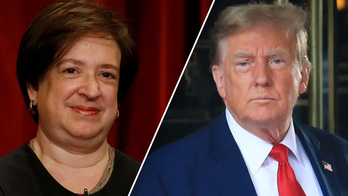
FILE: Vice President Joe Biden (AP) (AP)
WASHINGTON -- The Obama administration has not ruled out a military trial for the professed mastermind of the Sept. 11 attacks, especially since Congress may prohibit the funds for a civilian trial, Vice President Biden said Sunday.
Biden, in defending the Obama administration from critics of its approach to prosecuting accused terrorists, said it is not yet clear where Khalid Sheikh Mohammed and four other Sept. 11 suspects held at the U.S. military prison at Guantanamo Bay, Cuba, will be tried.
He said part of the reason for that is the political winds have changed since New York City Mayor Michael Blomberg changed his mind and Republican Scott Brown was elected to the U.S. Senate from Massachusetts.
"The political circumstances changed. The mayor came along and said the cost for providing security to hold this trial is X-hundreds of millions of dollars which I think is much more than would be needed. And the elected officials, Democrat and Republican said we don't want this tried here in New York. That creates a political dimension in the sense that the Congress can control the cost and the purse strings of how much money we have to try this case," Biden said.
"So that's the only reason why the president is taking it under consideration. We have no doubt that the best, most effective legal way to put this guy behind bars for the longest time and get the most information with the most certainty is in an Article 3 court," he added.
Biden said he believes Mohammed will be found guilty regardless of the venue. His remarks echoed comments last month by White House press secretary Robert Gibbs, who said Mohammed "is going to meet justice and he's going to meet his maker."
Republicans and some Democrats argue that terrorists should be treated not as criminals but as enemy combatants and tried by military commission.
"Putting Khalid Sheikh Mohammed, the mastermind of 9/11, in the middle of New York City in civilian court criminalizes the war. And if he's not an enemy combatant worthy of military trial, who would be? asked Sen. Lindsey Graham, R-S.C.
"I will meet the president more than halfway. I will help him close Guantanamo Bay, only if he creates a legal system that will make us safe, keep this enemy off the battlefield in a transparent way, living within our values," he added.
Biden said Graham and others in the U.S. Senate have helped the administration beef up military courts so they can pass "constitutional scrutiny," but said the administration still prefers a federal courtroom.
"We have to consider (a military court), because we don't know what political constraints can be placed on us in terms of the cost of trying the case in a criminal court in the federal system, but that is still our preference," he said.
Former Vice President Dick Cheney, a chief critic of the Obama administration, said the president has put himself in a difficult position because of his insistence Mohammed be tried in New York City.
"They've got difficulties now, because my guess is they don't want to send him back to Guantanamo, because that would validate, if you will, the value of Guantanamo," he said.
"It's a valuable facility. There's a reason why we set it up. It makes good sense. There's obviously great reluctance on Capitol Hill to appropriate the funds to close it down. I think -- I think Guantanamo is going to be there for quite a while," Cheney added.
Cheney also said Sunday that Obama erred in initially pronouncing the accused Christmas Day bomber a lone extremist rather than an extension of the wider Al Qaeda network bent on attacking the United States. He also criticized the decision to try the suspect, Umar Farouk Abdulmutallab, in a civilian court.
Cheney, however, acknowledged that the Bush administration handled shoe bomber Richard Reid the same way, when he could have been declared an enemy combatant and held in military custody. The former vice president said he disagreed with that decision at the time. Reid was convicted of trying to bring down an airliner in December 2001.
"We could have put him into military custody," Cheney said.
Cheney reiterated his support for the now-abandoned harsh interrogation program run by the CIA, which included waterboarding -- a form of simulated drowning that Obama and Holder have pronounced torture-- and said he thought those methods should have been an option in the interrogation of Abdulmutallab.
"I was a big supporter of waterboarding. I was a big supporter of the enhanced interrogation techniques," Cheney said.
"That's Dick Cheney. Thank God the last administration didn't listen to him at the end," Biden responded. "I think his fight seems to be with the last administration. We did exactly what President Bush did. We got the similar result. We are protecting America. And I don't know -- it seems like Dick Cheney can't take yes for an answer."
Biden appeared on NBC's "Meet the Press" and CBS' "Face the Nation." Cheney appeared on ABC's "This Week." Graham appeared on "Fox News Sunday."
The Associated Press contributed to this report.




